Our accounting software is user-friendly, browser-based, and the best accounting software in Bangladesh. It combines a Multi-user easy accounting software for small businesses. This accounting Software is used as offline accounting software, and we also provide online accounting services.
Request a Demo
Finance management control weight scale to prevent less and high weight. There is no input fill. So your stuff will not enter extra value.
Customer order to delivery whole process is fully automated. So, you have not headhack with your selling products.
Multiply your sales efforts with intelligent automation. Close deals faster, and with greater precision. you can manage your purchase easily.
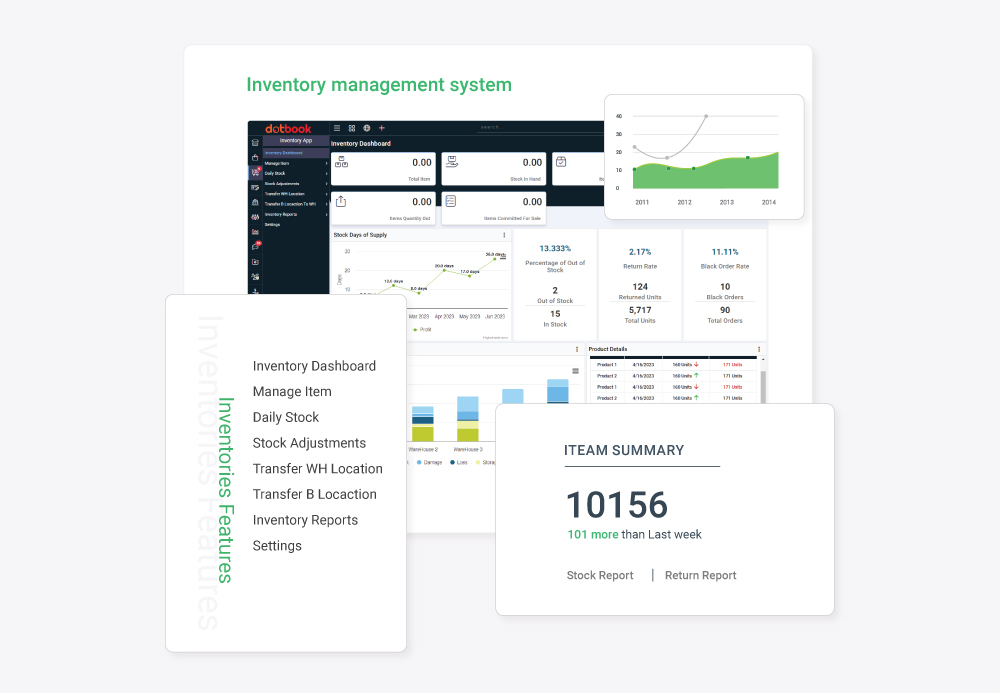

Inventory module in ERP software is used to manage the company’s inventory. The module typically includes the following features:
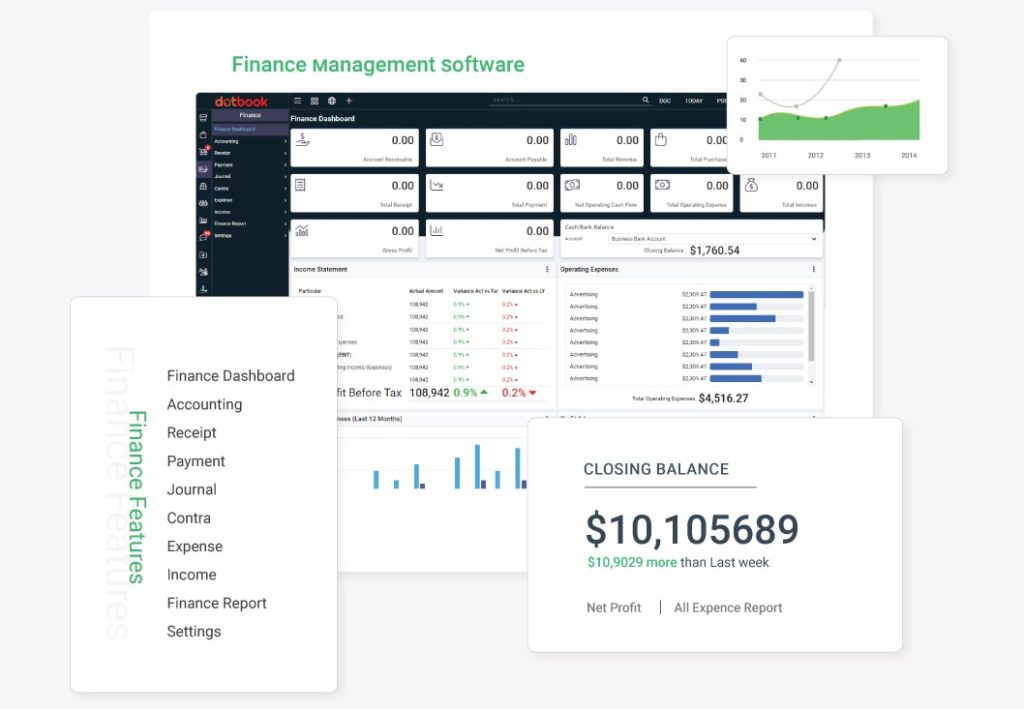

Finance management in dotbook ERP is the process of managing a company’s financial data and processes. It includes activities such as:
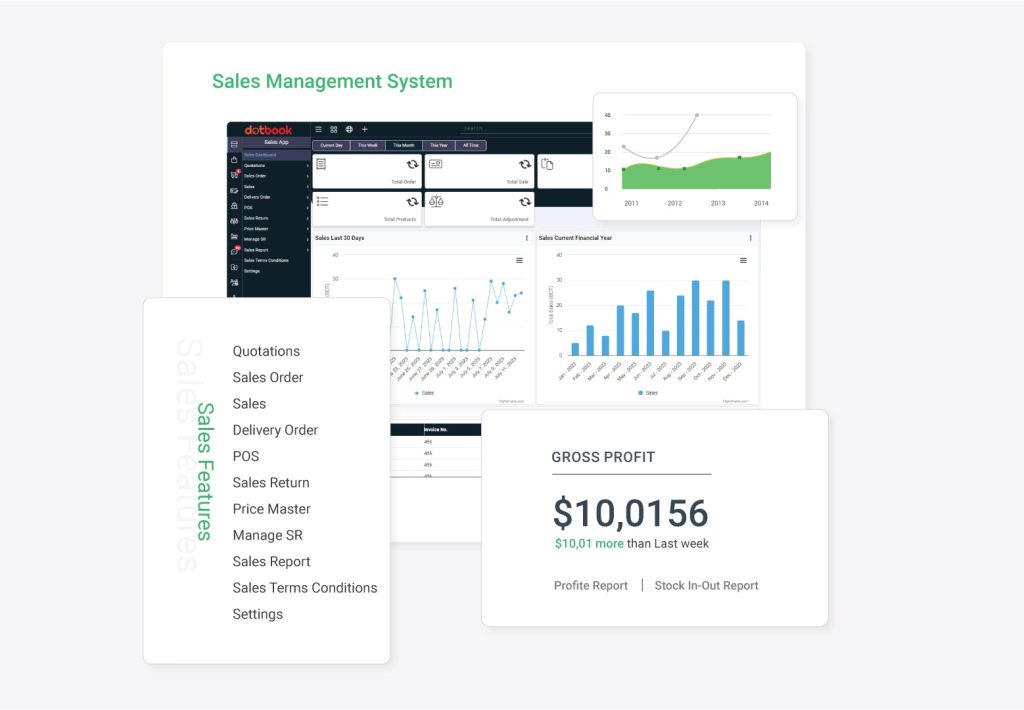

Sales Management in an Enterprise Resource Planning (ERP) system refers to the process of effectively managing and streamlining all aspects of the sales cycle within an organization. It encompasses various activities, such as lead management, order processing, inventory management, customer relationship management (CRM), and sales analytics. Here is a detailed description of sales management in ERP:
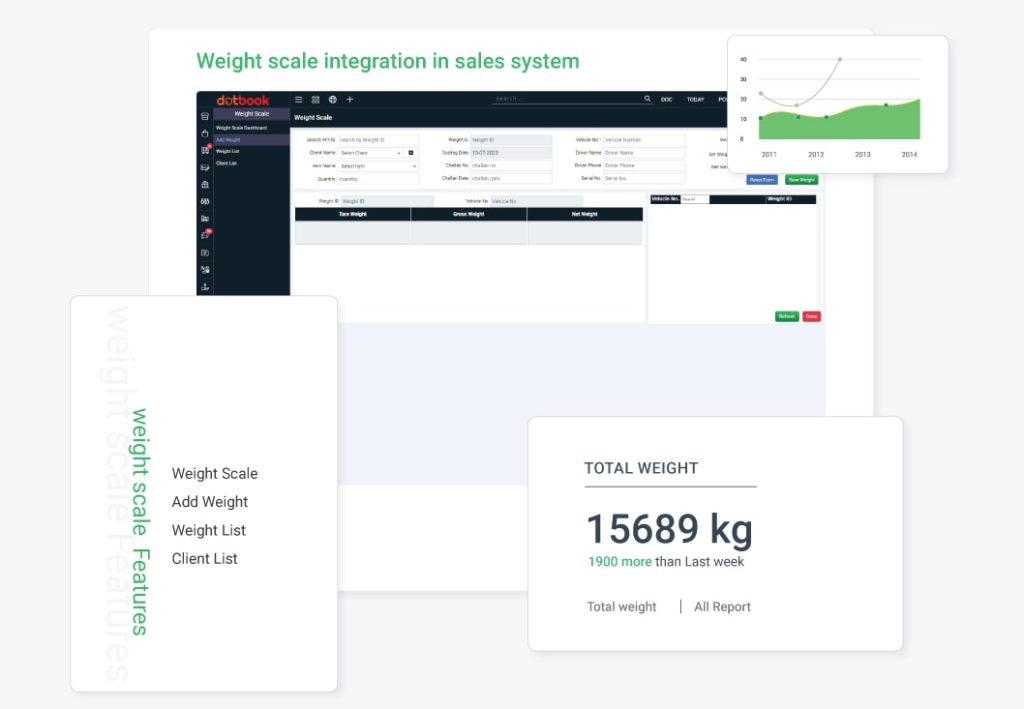

The backbone of accounting software, the general ledger tracks all financial transactions in the organization, providing a comprehensive view of financial activity


The General Ledger is organized according to a predefined chart of accounts, which lists all the accounts used by the organization. This chart typically includes categories such as assets, liabilities, equity, revenue, and expenses, with subcategories for more detailed tracking.


Users can create manual journal entries within the General Ledger to record transactions that don’t directly originate from other modules within the accounting software. Journal entries allow for adjustments, corrections, and other non-routine transactions.


Sales Management in an Enterprise Resource Planning (ERP) system refers to the process of effectively managing and streamlining all aspects of the sales cycle within an organization. It encompasses various activities, such as lead management, order processing, inventory management, customer relationship management (CRM), and sales analytics. Here is a detailed description of sales management in ERP:
“Outstanding service! Our website surpassed expectations. The team was responsive, creative, and delivered on time. Highly recommend their expertise for any web development needs. A true pleasure to work with.”
Founder & CEO

“Exceptional work! The website exceeded our expectations. The team was professional, efficient, and understood our vision perfectly. Highly recommend their services for top-notch website development.”
Founder & CEO

“Absolutely thrilled with the website! It’s exactly what we envisioned and more. The team was fantastic to work with, delivering exceptional results promptly. Highly recommend their expertise for any website project.”
Founder & CEO

If you’re looking for the best accounting software in Bangladesh, this is it! It has everything – VAT, payroll, invoicing, and real-time reports.
Founder & CEO

Our company switched last year, and it was the right choice. Truly the best accounting software in Bangladesh for medium-sized businesses.
Founder & CEO

Grow sales and stay ahead in the competitive market by being among the first to benefit from our game-changing solutions.
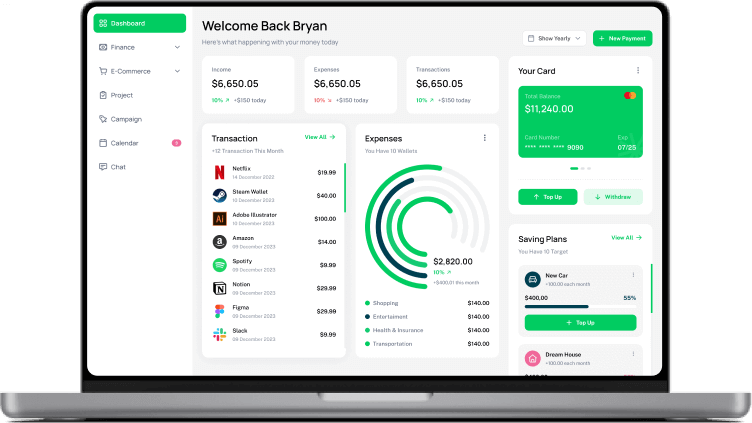

Accounting software is a type of application software used by businesses to record, process, and manage financial transactions and information. It automates tasks such as invoicing, bookkeeping, payroll, and financial reporting.
Key features of accounting software typically include: General ledger Accounts payable and receivable Invoicing Financial reporting Bank reconciliation Payroll processing Inventory management Tax preparation
Using accounting software offers several benefits, such as: Increased efficiency and accuracy in financial record-keeping Time savings through automation of repetitive tasks Better financial visibility and reporting capabilities Improved compliance with tax laws and regulations Enhanced decision-making based on real-time financial data
Accounting software should have robust security measures to protect sensitive financial data. This may include encryption of data transmissions, role-based access control, regular data backups, and compliance with data protection regulations such as GDPR or HIPAA.
Scalability is an important consideration when choosing accounting software, especially for growing businesses. Ensure that the software can accommodate your business's growth in terms of transaction volume, user count, and additional features or modules.
Accounting software helps businesses streamline their financial processes, improve accuracy, save time, and make informed decisions based on real-time financial data. It also facilitates compliance with tax regulations and reporting requirements.
There are various types of accounting software available, including: Desktop-based accounting software Cloud-based accounting software Enterprise resource planning (ERP) systems with accounting modules Industry-specific accounting software for sectors like construction, healthcare, or hospitality
When choosing accounting software, consider factors such as: Business size and complexity Budget and cost considerations Required features and functionalities Integration with other business systems User-friendliness and ease of use Security and data protection measures
Many accounting software solutions offer integration capabilities with other business systems such as customer relationship management (CRM), inventory management, or point-of-sale (POS) systems. Integration streamlines data flow between different systems and enhances overall business efficiency.
Look for accounting software vendors that offer comprehensive customer support and training options, such as user guides, tutorials, online forums, and live chat or phone support. Training sessions or workshops may also be available to help users maximize their use of the software.